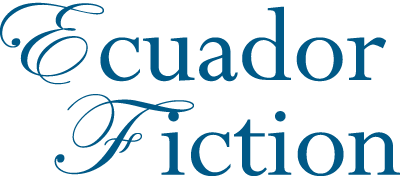Authors & Stories
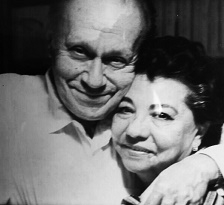 Demetrio Aguilera Malta
Demetrio Aguilera Malta
Demetrio Aguilera Malta (1909 – 1981) was an Ecuadorian writer, playwright, film director, war correspondent (Spanish Civil War), teacher, painter, and diplomat. Born in Guayaquil, the setting of his short stories and early novels, he was a member of the famed Guayaquil Group in the 1930s-40s. These author’s works reacted to the social climate of the times, highlighting the oppression of the cholo by the elites (click here to continue reading).
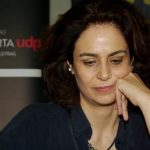 Gabriela Alemán
Gabriela Alemán
Gabriela Alemán has emerged as one of the most prominent voices of the new generation of Ecuadorian writers. Her stories have been translated into multiple languages, including Croatian, Chinese, Hebrew, French, as well as English, and she has been much-honored for her work with fellowships and literary awards. The Peruvian author, Fernando Iwasaki has stated that she is “one of the best contemporary writers of stories in the Spanish language,”(click here to continue reading).
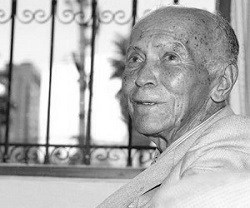
Nelson Estupiñán Bass
The only Ecuadorian novelist and poet ever nominated for the Nobel Prize, Nelson Estupiñán Bass (1912 -2002) was also one of the leading voices of the Afro-Latin literary movement, being of African heritage and born into the Afro-Ecuadorian coastal city of Esmeraldas. Trained in accounting, while working in that field, he developed his writing career by publishing a series of literary journals in his community (click here to continue reading).
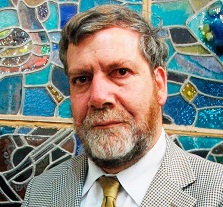
Eliécer Cárdenas
.
Eliécer Cárdenas Espinosa was one of the very few Ecuadorian writers of his time to author novel, Polvo y ceniza, (Dust and ash) that became a popular bestseller with the country’s readers. More than forty years after its’ publication it remains the most widely sold novel by an Ecuadorian (click here to continue reading).
.
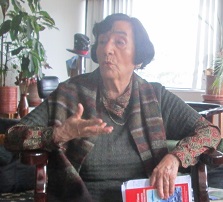 Fanny Carrión
Fanny Carrión
Fanny Carrión is an author and a poet, but she is also one of Ecuador’s most prolific scholars, and with extensive experience teaching both in Ecuador and the United States. Dr. Carrion obtained her PhD from the Pontifical Catholic University of Ecuador in Quito, after getting her Masters from UC-Berkeley in California, and an undergraduate degree in Spanish Language and Literature from Central University in Quito (click here to continue reading).
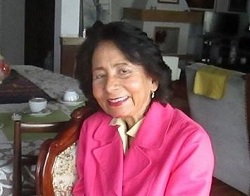 Luz Argentina Chiriboga
Luz Argentina Chiriboga
Luz Argentina Chiriboga is one of Ecuador’s premier Afro-descendent writers. Her literary scope is wide – narratives, essays, novels and poetry – that encompass her work as genealogist, linguist, environmentalist and human rights activist in the arena of Afro-Latina women and culture (click here to continue reading).
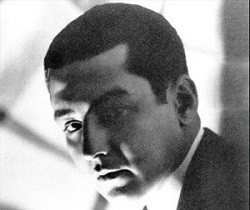
José de la Cuadra
Best known for his short stories, José de la Cuadra is one of the most illustrious Ecuadorian writers in terms of technical expertise and political commitment. He was an active member of the Generation of 1930 and of the Group of Guayaquil. As a lawyer, professor and social activist, he steadfastly served the popular classes, especially the montuvios – lowland peasants, inhabitants of the coastal region of Ecuador (click here to continue reading).
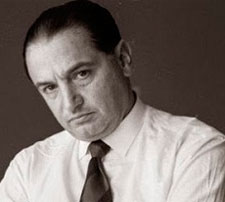 Jorge Icaza Coronel
Jorge Icaza Coronel
Jorge Icaza was a bookstore owner by profession. A resident of Quito, he visited his uncle’s Riobamba hacienda in the sierra in 1912. He attributed the inspiration for his best-known work, Huasipungo 1934 (The Villagers) to this contact (click here to continue reading).
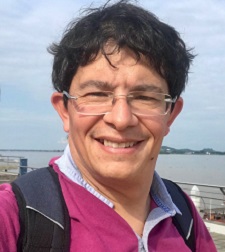
Cristián Londoño Proaño
Born in 1973, Cristián Londoño Proaño is a writer, producer, filmmaker and editor-in-chief of the digital magazine, “Teoría Ómicron.” He has a Masters in screenwriting, and is currently working towards a PhD in Communication Studies. He has invented and developed the concept of the Andean fantasy novel. He has also published the novels (click here to continue reading).
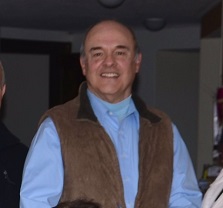
Luis Aguilar Monsalve
He has been professor at several universities in the United States and Ecuador in the disciplines of Political Science, Comparative Literature and International Relations. He has master’s degrees in Hispanic American Studies and International Relations and Ph.D. degrees in Political Science and Hispanic Languages and Cultures (click here to continue reading).

Santiago Páez Gallegos
Start by mixing together: the study of law in Quito; a PhD in Communication from Spain; and a fascination with anthropology. Add to this eclectic mix living in varied communities—warm buggy days and deep black nights in the coastal Manglars of Esmeraldas getting to know fisherman, or warmed by a strong sun high in the Andes Mountains (click here to continue reading).
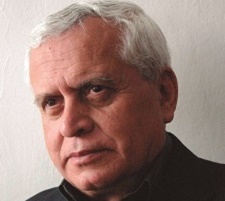
Francisco Proaño Arandi
An ambassador and author, Francisco Proaño Arandi has represented Ecuador at his country’s embassies in Colombia, Cuba, Nicaragua, Costa Rica, Argentina, the former Yugoslavia, and the former Soviet Union, all the while cultivating his craft as a storyteller. He was born in Cuenca, in 1944, but grew up in Quito’s colonial-era historical center, which scholar Yolando Montalvo claims had an impact on his work (click here to continue).
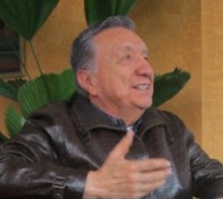 Marco Antonio Rodríguez
Marco Antonio Rodríguez
Born in 1941 in Quito, where he also grew up, Marco Antonio Rodríguez has an undergraduate title in Modern Humanities and Social Sciences, and a Master’s in Political Science from Colombia’s Universidad Javeriana. In addition, he also has a PhD in Jurisprudence and another in Philosophy and Letters from Quito’s San Gregorio Faculty (click here to continue reading).
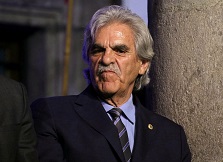 Raúl Pérez Torres
Raúl Pérez Torres
Currently the Minister of Culture, Raúl Pérez Torres has long been considered one of Ecuador’s most important contemporary voices in narrative fiction. Among his honors are the the José Mejía prize, awarded by the Mayor’s office in Quito, for his 1978 novel, Ana la pelota humana (Ana the human ball) (Quito, 1978), while his Solo cenizas hallarás(Only ashes you will find) won he Juan Rulfo award in France as well as the Julio Cortazar Award (click here to continue reading).
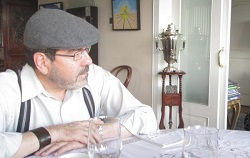 Vladimiro Rivas Iturralde
Vladimiro Rivas Iturralde
Vladimiro Rivas Iturralde (born 5 June 1944 in Latacunga, Ecuador) is a writer of short stories and novels, as well as an essayist, literary critic and university professor. After graduating from the Pontificia Universidad Católica del Ecuador in Quito with a degree in education and linguistics, Rivas embarked on a career as an arts critic (to continue reading, click here).
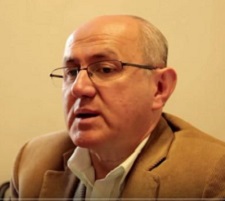
Raúl Serrano Sánchez
A professor at the Universidad Simón Bolívar in Quito, Raúl Serrano Sánchez is a novelist, journalist, and scholar. Born in 1964, he pertains to the “Post-disenchantment” Generation of Ecuadorian writers. His novels and short fiction anthologies have won multiple awards (click here to continue reading).
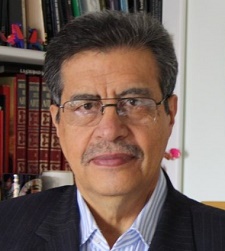
Abdón Ubidia
Fiction writer and essayist Abdón Ubidia was born in 1944. He is considered one of the most representative and relevant voices of modern Ecuadorian literature. In 2012, he won the Eugenio Espejo Literature Prize, awarded by Ecuadorian President Rafael Correa (click here to continue reading).

Javier Vásconez
Javier Vásconez, born 1946, Quito, is not yet so well known in the English- speaking world, but he is certainly keenly appreciated in Spanish and Latin- American circles, and has had stories and chapters of some of his novels translated into French, German, English, Italian and Swedish. He has received high praise for his work, and considerable critical attention. His narratives have been described by some as belonging to the tradition of Faulkner, Camus, Onetti and Dostoyevsky (click here to continue reading).
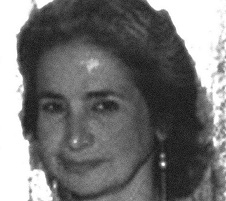 Eugenia Viteri
Eugenia Viteri
In terms of 20th century Ecuadorian authors, Eugenia Viteri is a pioneer in introducing feminist themes to Ecuadorian fiction, such as domestic violence, prostitution, and romantic-sexual intimacy between women. Her work has also been noted for its spontaneity and tenderness. She has been equally bold in her personal life, as founder of the Fundación Cultural Manuela Sáenz (click here to continue reading).
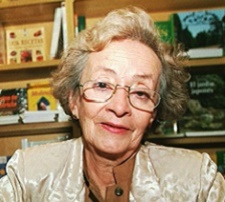 Alicia Yáñez Cossío
Alicia Yáñez Cossío
Alicia Yáñez Cossío (Quito, 10 December 1929) is perhaps Ecuador’s most famous woman writer on the world scene. A trained journalist, she has primarily published fiction and poetry. She has won several international and national awards (click here to continue reading).
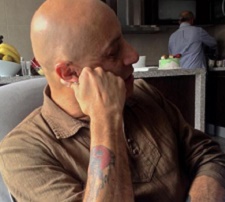 Ney Yépez Cortés
Ney Yépez Cortés
A veritable renaissance man, as well as a representative of a younger generation of writers in Ecuador, Ney Yépez Cortés is recognized in his country as much for being a musician-performer, as well as instructor in the arts of Tai Chi, Reiki and Qi Gong, as he is for his fiction and journalism (click here to continue).
